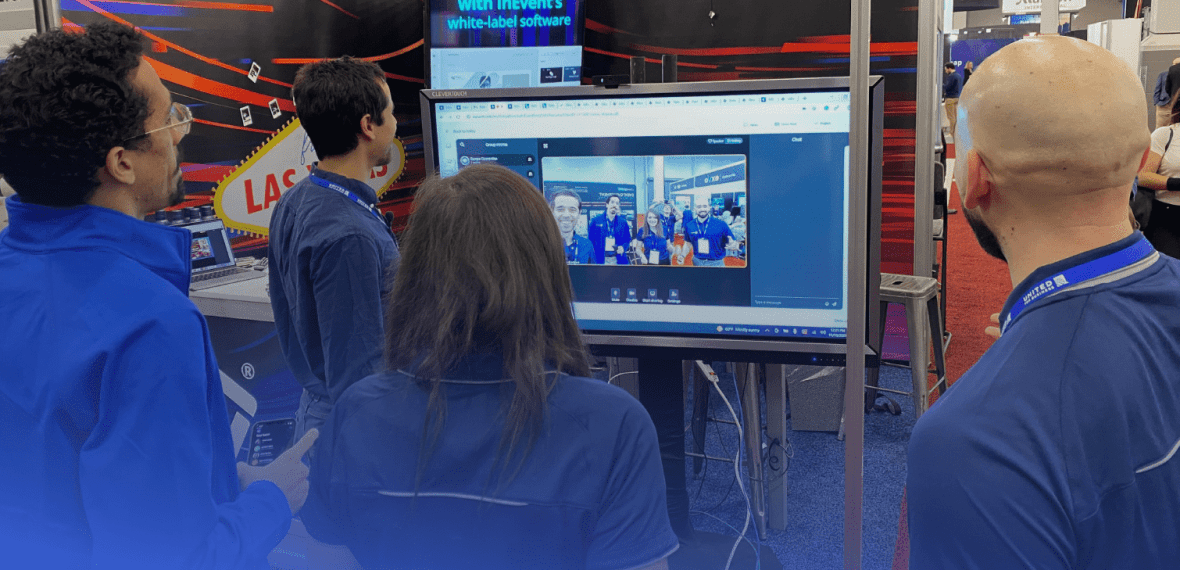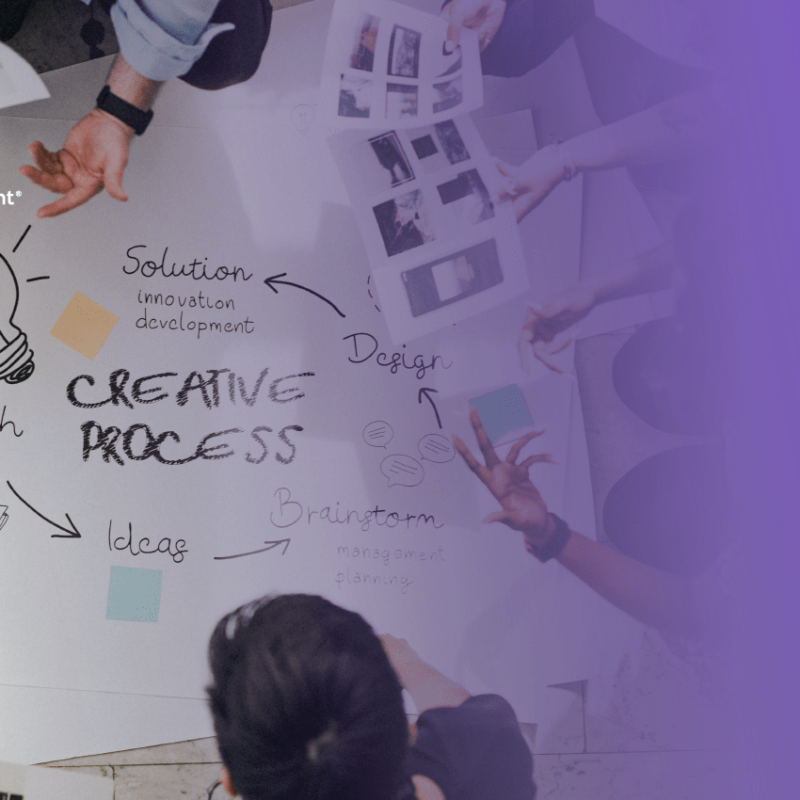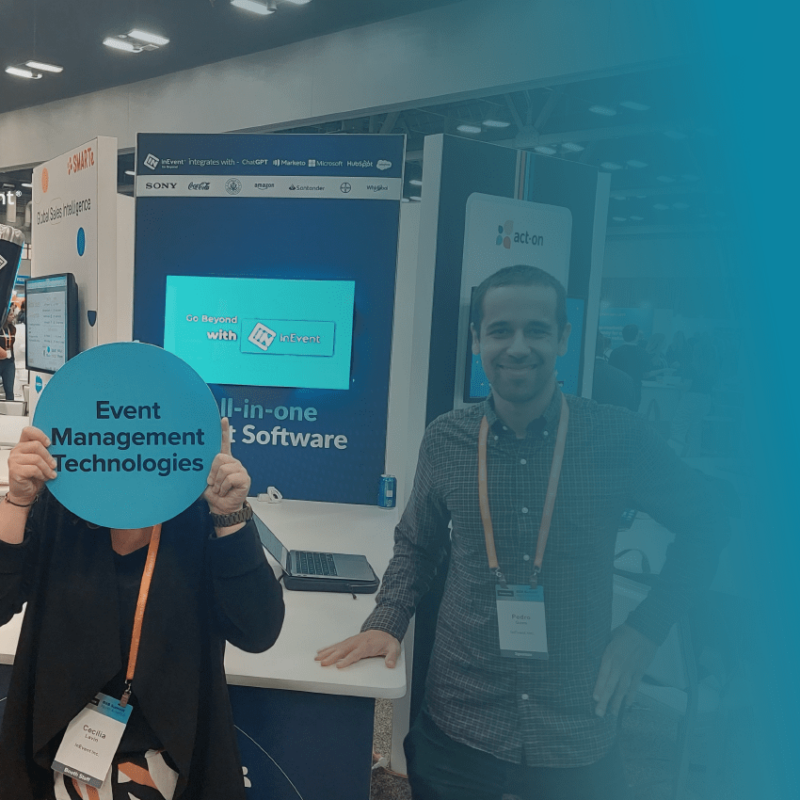11 Best Event Planner Tools & Platforms in 2024
Planning an event can be daunting and stressful, but it can become a breeze with the right event platform. Event management software has changed significantly, offering organizers newer and more effective ways to manage their events. In today’s world, event platforms are becoming increasingly crucial for businesses and individuals to organize events efficiently. With the right event platform, you can make your events a success and become a superstar organizer in 2024.
This article will highlight the ten best event platforms to help you easily plan and manage your events. We will discuss their features, pricing models, and pros and cons so that you can decide which one is best suited for your needs. So let’s get started!
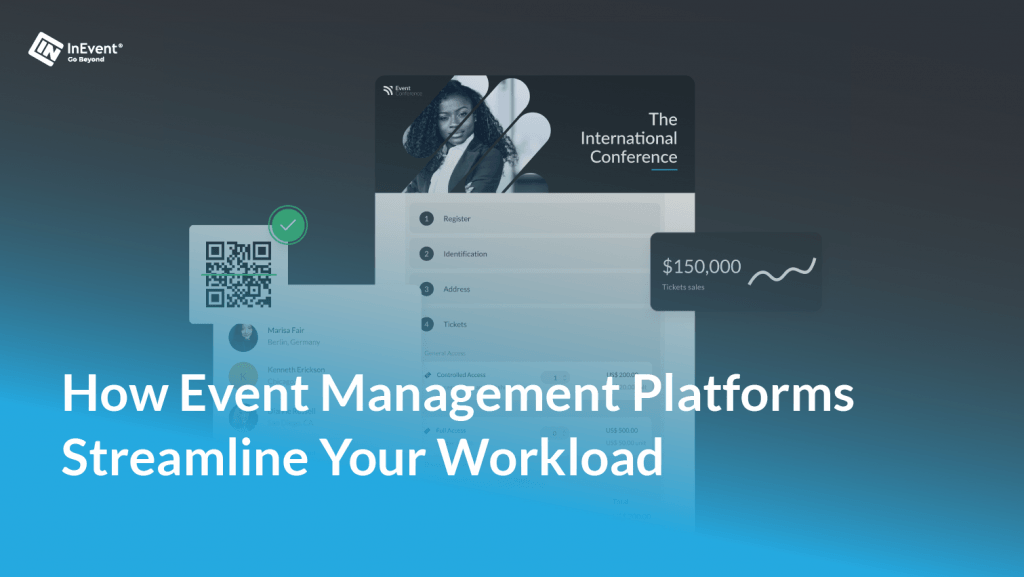
How Event Management Platforms Streamline Your Workload:
– Event Management Platforms: Simplifying Event Organizers’ Work
Corporate event management software are all-in-one solutions that simplify the work of event organizers. They save time, money, and energy by streamlining ticket sales, event marketing, and attendee management tasks.
– Efficient Start-to-Finish Management
A centralized hub provided by a good event platform allows for efficient start-to-finish management. You can automate workflows that make it easy to use while built-in messaging systems streamline all communication with attendees. Secure payment handling options give you real-time stats on attendance numbers and revenue generated from ticket sales, and more.
– Automated Email Campaigns
Save yourself hours of manual work with reminders or follow-ups sent automatically. This feature ensures that attendees are informed and engaged throughout the event planning process.
– Analytics-Driven Insights
This feature helps event organizers to make informed decisions based on real-time data. Analytics-driven insights offer data-backed understanding for better decision-making.
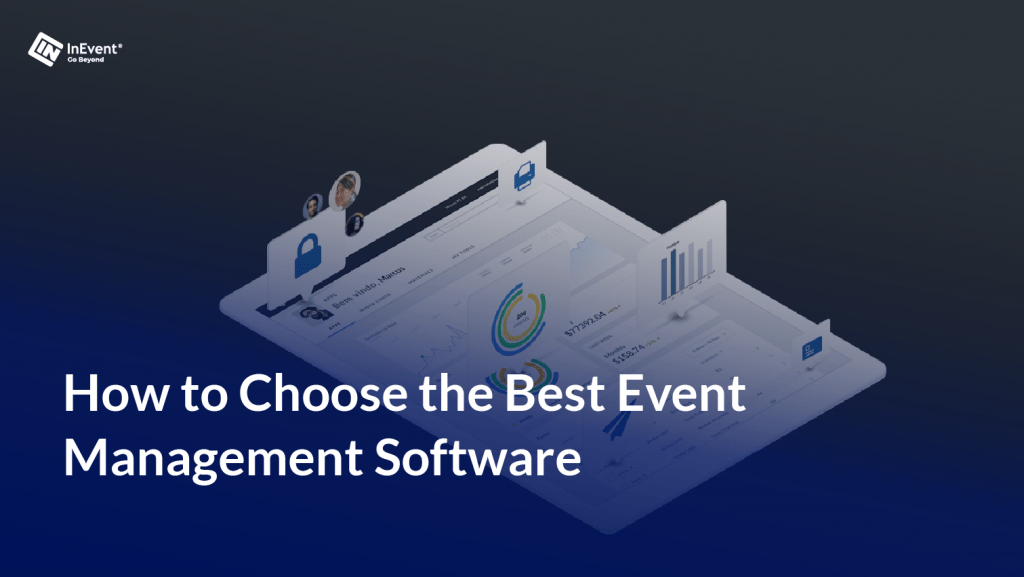
How to Choose the Best Event Management Software:
Are you looking for an effective way to handle tedious tasks like constantly updating schedules? Would you like attendees to participate more actively while helping exhibitors boost business prospects? And do you crave cost savings from an efficient ticketing system? Event management software provides a range of functions and features, making it essential to prioritize your specific requirements. Before choosing any tool, ensure that it meets your needs. Critically evaluate each “Planners’ & Organizers’ Favorite Event Management Software” option below, considering if they meet your requirements based on pricing, user-interface design quality, and customer support availability.
- What do you need for your event? A ticketing system, a web or mobile brochure, an event website customized for your brand, content/event marketing, attendee engagement solutions, attendee check-in tool, or lead retrieval tools for exhibitors? Write down everything you can think of.
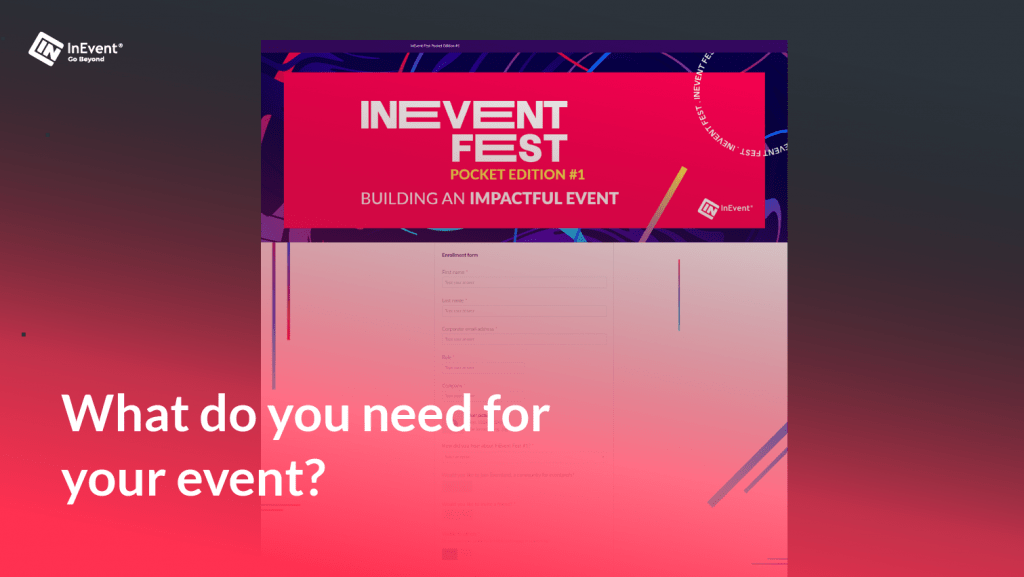
2. Is the event planning software mobile-friendly? Does the platform offer an app for your attendees too? Which operating system and devices should the software support? Do you need a mobile event planning app?
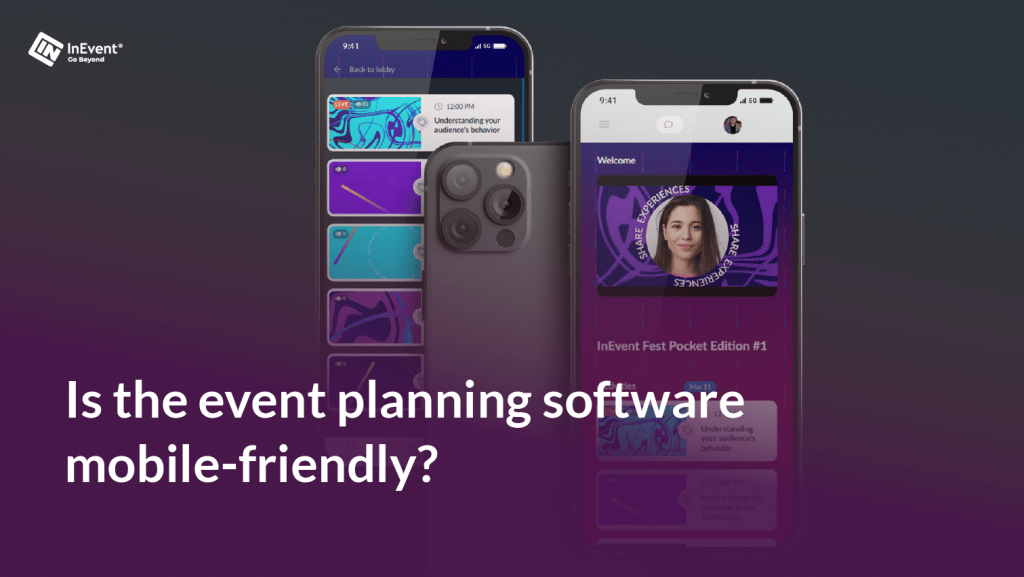
3. What are its reviews on software review platforms like G2, Capterra, and other trusted review sites? What do the testimonials and case studies say?
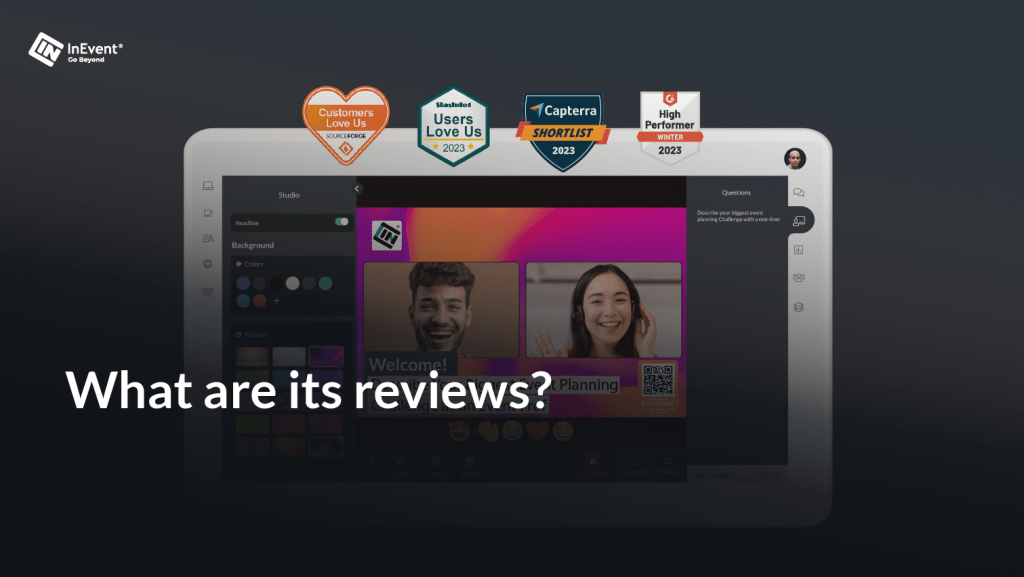
4. How easily can you adopt the software? Do you need it to work on iOS or Android, or both? Do you want corporate event management software that offers a live demo and is easy to adopt? What integrations do you need?
5. What is your niche? What is the size of the events you organize?
6. What is your budget to spend on software monthly or annually? How do you determine expenses? Do you have insight into all your event needs for appropriate allocation? Download our free budget template to make planning 100% easier.
Top 11 Event Planning Software to Elevate Your Game.
Event planning software is crucial to excelling in the industry. Finding the right platform can be overwhelming, but we’ve got you covered.
Here are the top 11 event planning software that can make you a superstar.
1. InEvent

InEvent is an award-winning all-in-one event management platform. It has received the Best Conference Technology at the Event Technology Awards (the ‘Oscars’ of event technology) and the Best Virtual Event Award, among many other awards & recognitions.
At InEvent, we understand how confusing event management can be when dealing with many bits and pieces on various platforms. Our app is designed & built with your conference, in-person, hybrid, and virtual events in mind, making it the only system you’ll need to manage everything from start to finish. Key features of the InEvent event planning software include:
- Mobile/desktop event planning app – with engagement and networking
- Event registration/ticketing
- Event website creation, trade show & event marketing
- Abstract management
- Badge creation & printing, attendee check-in, surveys
- Sponsor and exhibitor showcase features
- Event Housing management & Accommodation
- Travel, hospitality & logistics
- Event gamification for all kinds of events
Suppose you need an intuitive all-in-one event scheduling system with excellent support and features, a user-friendly and customizable interface, and the best event management software that provides helpful data analytics, reports & insights continuously updated to improve the customer experience. In that case, InEvent is the right choice for you. Pricing begins from $9990. Need a custom quote? We’re happy to get you started.
InEvent delivered a great in-person experience with powerful solutions like RSVP, Automatic Registration, Analytics, Beacons & NFC Technology. The team built a fully customized Mobile App with custom features for our conference that hosted thousands of attendees. Working with the InEvent team was a smooth & successful experience!
Koteshwar Lankadasu – Director – Operations and Marketing, Coca-Cola India.
2. Eventbrite

It is a comprehensive platform & a popular ticketing solution for events offering ticketing services, registration management, marketing tools, and data analytics capabilities. The system is customizable and can also send email confirmations and reminders. It also allows people to register from both their phones and computers.
Famous for smaller or entertainment events with its user-friendly interface and customizable features, however, event organizers consider it a bit pricey compared to other registration tools and all-in-one event planning software.
Here are some simple key features of Eventbrite:
- Easy creation and management of event pages.
- Online ticket sales and registration for attendees.
- Customizable event pages to match your style or brand.
- Tools to promote your event on social media and other channels.
- A platform for attendees to discover events that interest them.
- Real-time access to sales and attendee data.
- Mobile app for managing events and checking in attendees.
- Integrations with other tools like CRM systems, email marketing platforms, and more.
- Options for various types of events, from free community gatherings to large conferences.
3. EventBookings

Eventbookings, the most user-friendly ticketing platform, is created to meet the need of every event manager and overall simplify the whole event management process. However, the simple interface doesn’t make it any less in features as it is full of advanced elements like- mobile ticket scanning, coupon facility, email marketing, smart forms, customization and many more.
Say goodbye to the same old boring interface for your ticket-selling page because, with EventBookings, you can enjoy full customization features. This allows you to add more attractive components like images or videos to express about the event and connect to more audiences.
Also, by simply circulating URLs, managers can do event marketing on social media platforms or email. Moreover, the most important good news is comparing to the market, its rates are very affordable. It’s a one-stop solution where you can sell tickets online hassle-free, and attendees can easily purchase tickets. So, now you can enjoy these never-ending features at a reasonable rate with EventBookings.
Here are some key features of EventBookings:
- Straightforward setup for creating and customizing your event page.
- Online ticket sales with different pricing tiers and discounts.
- Built-in marketing tools to help spread the word about your event via email and social media.
- A customizable event page that lets you add details, images, and maps.
- Live streaming options for virtual or hybrid events.
- Real-time tracking of ticket sales and attendee data to monitor your event’s success.
- A mobile-friendly platform that ensures your event page looks great on any device.
- Secure online payment processing for ticket sales.
- Features for managing attendees, including check-ins and registrations.
- Post-event surveys to collect feedback from participants.
4. Zoom

Zoom is a cloud-based video conferencing platform for video conferencing meetings, audio conferencing, webinars, meeting recordings, and live chat. I’m sure you’re already familiar with Zoom, but Zoom Events is a new solution specifically for events. Zoom Event is a platform for hosting online events, such as webinars and courses.
However, Zoom Event mainly focuses on smaller classes and webinar series. Suppose you’re planning a larger conference or event: In that case, this platform may not be the right fit as it also lacks some of the more advanced features that other platforms offer, such as live streaming capabilities, analytics tools, and integration with other services like digital booths for sponsors and exhibitors.
If you’re planning a small-scale event that won’t need all the features that all-in-one event planning software can provide, you can consider Zoom Events. However, you may still want to view these other platforms if they allow you to opt in and out of which features you’ll need.
Here’s a simple breakdown of key features:
- Video and audio conferencing, allowing for large meetings and webinars.
- Screen sharing, making it easy to present slides, videos, or other materials.
- Breakout rooms, which let you split your meeting into smaller groups for discussions.
- Virtual backgrounds and touch-up features to enhance your appearance on camera.
- Chat functionality for text communication among participants.
- Recording options to save meetings or events and share them later.
- Integration with calendars (like Google Calendar) for scheduling and invites.
- Waiting rooms and participant controls for privacy and security.
- Polling and Q&A features to engage your audience during events.
- Mobile app support, so participants can join from anywhere on any device.
5. Monday

Mondays don’t have to be bad. This platform offers productivity and time-saving features, such as time tracking, automated notifications, customizable workflows, dependencies, timeline views, and integrations, so you can effortlessly organize events and other projects with better and faster results.
Monday.com seeks to simplify event planning, tradeshow, and event marketing by bringing together all the tasks and deadlines onto a visual platform. This tool helps you keep track of who is doing what. With eight templates to help you visualize data, including Kanban, timelines, calendars, and maps, Monday.com lets organizers determine at a glance what stage people are at and create an ideal workflow that gets things done.
Here’s a simplified look at its key features:
- Customizable workflows: Set up your projects and tasks in a way that suits your team’s specific needs.
- Collaborative boards: Create visual boards where teams can track progress and manage tasks together.
- Time tracking: Keep an eye on how much time is spent on each task or project.
- Automations: Reduce repetitive work by setting up automatic actions within your projects.
- Integration: Connect Monday.com with other tools you use, like email, calendars, and more, to streamline your workflow.
- File sharing: Easily share documents and files with your team directly within the platform.
- Communication tools: Comment on tasks, mention team members, and keep all project-related discussions in one place.
- Dashboards: Get a high-level view of project progress, team workload, and other important metrics.
- Mobile app: Access your projects and tasks from anywhere with their mobile app.
- Security features: Keep your data safe with advanced security measures.
6. Everwall

If you would like a social media wall at your event, Everwall is an excellent bet. Whether your attendees use Twitter, Instagram, Slack, SMS, or email, Everwall displays posts harvested based on specific hashtags, keywords, phrases, or users you define. This software lets you see what people say about your event and drive further engagement.
Social engagement is an excellent benefit for attendees of events and organizers, but switching between platforms can also be annoying. To make the experience more seamless, consider using a single platform for effective social engagement, data reporting, and collaboration.
Here’s a simple breakdown of its key features:
- Live social media feeds: Collect and display posts from various social media platforms in real-time.
- Customizable display: Design your social wall to match the event’s theme or brand with customizable templates and layouts.
- Moderation: Control which posts appear on your wall with easy-to-use moderation tools to filter out inappropriate content.
- Hashtag tracking: Aggregate posts from Twitter, Instagram, and more using specific hashtags related to your event.
- Analytics: Track engagement and measure the impact of your social wall with detailed analytics and reports.
- Interactive features: Engage your audience with features like polls and contests directly on the social wall.
- Multi-platform support: Display your social wall on any screen size, from smartphones to large display screens at venues.
- Easy setup: Quickly set up your social wall without needing advanced technical skills.
7. Slack

Slack is a popular resource for team communication used for event session interactions. It allows you to create different channels to communicate with other members of the team or event attendees. Slack also provides file sharing, video conferencing, and task management features. It is an ideal platform for event organizers to interact with their attendees in real-time and keep them engaged throughout the event.
Accessible communication is an excellent benefit for attendees of events, but it can also be annoying to switch between platforms. To make the experience more seamless, you may consider using a single, user-friendly platform that allows for accessible communication and collaboration. With the right platform in place, attendees will be able to communicate easily without having to switch between multiple platforms.
Here’s a simple overview of its key features:
- Instant messaging: Send messages directly to colleagues or create group chats.
- Channels: Organize conversations by topics, projects, or teams in dedicated spaces.
- Voice and video calls: Talk one-on-one or with a group, directly within Slack.
- File sharing: Easily share documents, images, and other files with team members.
- Integrations: Connect Slack with other tools and services you use, like Google Drive, Trello, and many more.
- Searchable history: Find past messages, files, and conversations quickly with search.
- Notifications: Customize alerts to stay informed without being overwhelmed.
- Slack Connect: Collaborate securely with people outside your organization.
- Mobile app: Stay connected and collaborate from anywhere with their mobile app.
- Security features: Keep your data and conversations secure with comprehensive security measures.
8. ProjectManager

ProjectManager.com is a cloud-based project management software that provides an approach to organizing and managing projects of any size. It is designed to be scalable to teams and businesses, allowing users to manage multiple projects at once effortlessly. With its intuitive user interface, users can quickly create tasks, assign them to team members, track progress, and collaborate with others in real time.
ProjectManager.com offers powerful features such as Gantt charts for visualizing project timelines and resource allocation tools for optimizing resources across multiple projects. With its comprehensive suite of features, ProjectManager.com is the perfect solution for teams looking for an efficient way to manage their projects.
Here’s a simple overview of its key features:
- Project planning: Create plans with tasks, deadlines, and milestones.
- Task management: Assign tasks to team members, set priorities, and track progress.
- Gantt charts: Visualize project timelines and dependencies between tasks.
- Kanban boards: Organize work with drag-and-drop cards in a flexible board layout.
- Collaboration tools: Share files, discuss tasks, and update statuses in real-time.
- Time tracking: Log hours spent on tasks and projects for accurate billing and reporting.
- Reporting: Generate detailed reports on project progress, team performance, and more.
- Resource management: Allocate and manage resources efficiently to avoid overbooking.
- Risk management: Identify, track, and mitigate project risks.
- Mobile app: Access projects and collaborate with your team from anywhere.
9. Eventzilla

Eventzilla is the perfect platform for event organizers who want to create a successful event. It provides registration, tradeshow, and event marketing solutions that help organizers sell tickets, create landing pages, manage attendee lists, and more.
With Eventzilla, you can easily set up an online presence for your event and sell tickets quickly. It also offers powerful analytics tools to track the performance of your events and make data-driven decisions.
Here’s a straightforward rundown of its main features:
- Event registration setup: Easily create and customize your event registration page.
- Ticketing: Offer various ticket types, including paid, free, and donation-based tickets.
- Custom branding: Tailor your event page and communications to match your brand’s look and feel.
- Online and offline payment processing: Accept payments through various methods like credit cards, PayPal, and offline payments.
- Promo codes and discounts: Create discount codes to offer special pricing to attendees.
- Attendee management: Track registrations, send updates, and manage attendees effectively.
- Event marketing tools: Promote your event through email campaigns and social media integrations.
- Mobile check-in: Use the mobile app for easy check-in and on-site management.
- Analytics and reporting: Access detailed reports on sales, attendee data, and event performance.
- Integrations: Connect with other tools and platforms for added functionality, like CRMs, email marketing services, and more.
10. Sched

A budget-friendly event management software for organizing conferences, meetings, and festivals; Sched includes tools you need to plan and manage significant events.
Included:
- In-person, hybrid & virtual events
- Integrated paid registration
- Desktop and mobile app
- 12 months of post-event content hosting
Special pricing for non-profit and educational organizations is available.
11. TicketSource

Planning an event and need to sell tickets? TicketSource is a low-cost, professional-level online ticketing and box office management system with extensive digital marketing and audience management capabilities. It allows you to integrate in-house bookings with those from your website and social media, supports your e-marketing, and even lets you outsource your telephone box office.
Here’s a straightforward look at its main features:
- Free for event organizers: Setting up and managing events is free, with fees applied mainly to ticket buyers.
- Online ticket sales: Sell tickets directly from your website or the TicketSource website.
- Seating plan creator: Design custom seating plans for venues, allowing attendees to choose their seats.
- Box office system: Offers a comprehensive box office system for phone or in-person bookings.
- Ticket printing: Print tickets at home or opt for professional ticket printing and delivery.
- Payment processing: Securely process payments online for ticket sales.
- Marketing tools: Promote your event through social media integration and email marketing features.
- Event management: Access tools for managing event details, attendee lists, and door entry.
- Reporting and analytics: Track sales and gather insights with detailed reports and analytics.
- Customer support: Provides support for both event organizers and ticket buyers.
How InEvent works – your preferred all-in-one event management system.
Do you want to know more about how an all-in-one event planning software like InEvent works? In the video below, we reassure you of our commitment to helping busy event organizers save time and money and enhance the overall attendee experience. We want you to go beyond ordinary events!
Free Live Demo – InEvent Event Management Software.
Now that we’ve given you this famous event planning software breakdown, you can confidently decide which options to explore further. Especially as event formats are moving from virtual to in-person or hybrid, every event will always look different. So remember that the “best” event software isn’t the same for everyone. Selecting your best event management software is about finding unique solutions for your event so that you can be a superstar event organizer.
Click here to request a free live demo from InEvent or a breakdown of which features work best for in-person, virtual, and hybrid events.
